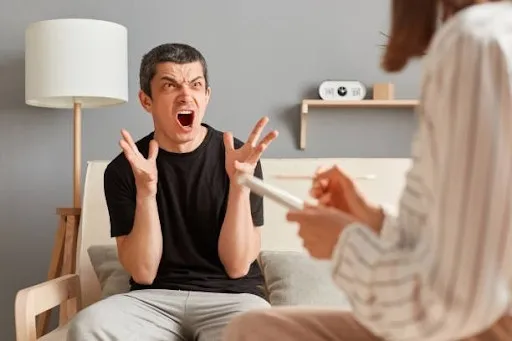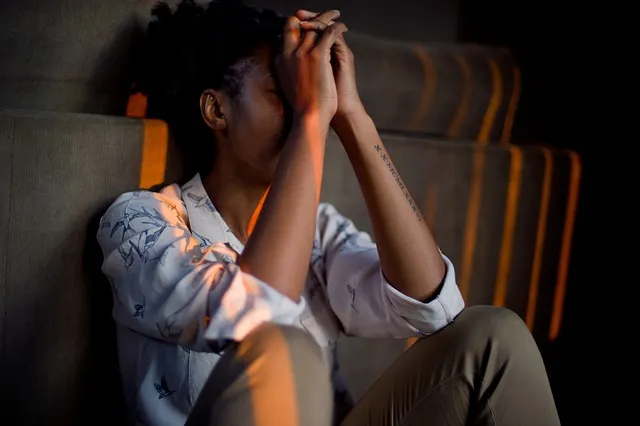Depression is a mood disorder characterized by intense and ongoing emotions of melancholy that can impact your daily activities and how you feel, think, and act. Your attitude on life may occasionally be impacted, and you may begin to believe that life is not worth living. Major depressive disorder and clinical depression are other names for depression.
The list of medicines for depression includes a variety of options, with Selective Serotonin Reuptake Inhibitors (SSRIs) like Prozac and Zoloft being commonly prescribed due to their effectiveness in managing symptoms. Scroll down to read more on Medications for Depression.
Why Do People Get Depressed?
Although experts are unsure of the actual cause of depression, they do believe that several distinct elements, including genetic susceptibility, improper mood regulation by the brain, stress, chemicals in the brain, drugs, or medical issues, interact with one another to do so.
Women and persons have a higher risk of experiencing depression than men:
-
Older people or those between the ages of 45 and 64.
-
With acute or chronic medical issues.
-
Someone going through significant life events such as job loss, divorce, professional stress, or physical or mental abuse
-
With intense grief brought on by the loss of a loved one.
-
Using prescription medications that could lower mood.
-
Abuse of drugs or alcohol.
What signs of depression are there?
Depression is more than only having the occasional bad day. Over a more extended period, it influences daily emotions, thoughts, and actions. (MDD), which can cause issues with family life, employment, and social activities.
Depending on how severe a person's depression is, different symptoms may be present. However, they may also
-
A depressed state that has persisted for over two weeks is crying or has made you feel hopeless.
-
Irritability.
-
Irritation or unease.
-
Avoidance of or refusal to engage in previously enjoyed activities.
-
Social withdrawal from friends, family, and relationships.
-
Alterations in eating or sleeping patterns.
-
Undiagnosed physical issues like back pain or headaches.
-
Substance, alcohol, or drug misuse.
-
Committing dangerous or damaging acts.
-
Suicide attempts or self-harm.
List of medicines for depression-
There are Various depression medications available in the market, some of them are as follows:
1 Abilify (aripiprazole)-
Abilify is one of the atypical antidepressants, is known for its unique mechanism of action, and is often considered for individuals who need an alternative to more traditional antidepressant medications. This is an antipsychotic medication combined with an antidepressant.
2 Adapin (doxepin)-
Depression and anxiety are among the mental/mood issues this medicine addresses. It could help you feel happier and more at ease, reduce stress and anxiety, get better rest, and have more energy.
3 Anafranil (clomipramine)-
OCD is a condition that is treated with clomipramine. It aids in reducing repetitive urges to carry out actions (compulsions such as hand-washing, counting, and checking) that interfere with daily functioning and undesired or persistent thoughts (obsessions).
4 Aplenzin (bupropion)-
The prescription drug APLENZIN® (bupropion hydrobromide extended-release tablets) is used to treat individuals with major depressive disorder as well as to avoid autumn-winter seasonal depression (seasonal affective disorder).
5 Asendin (amoxapine)-
Depression is treated using this medicine. Your mood and sense of well-being can be improved by getting treatment for depression, which will enable you to enjoy life more.
6 Aventyl HCI (nortriptyline)-
Depression and other mental/emotional issues are treated with this medicine. It can elevate your mood and sense of well-being, reduce stress and tension, and give you more energy.
7 Brexipiprazole (Rexulti) -
This is an antipsychotic medication combined with an antidepressant. Brexipiprazole is one of the newer medications included in the list of medicines for depression, offering a combined approach to address both depressive and, when necessary, psychotic symptoms in certain individuals.
8 Caplyta (Lumateperone) -
This medicine is an atypical antipsychotic drug used to treat bipolar depression.
9 Celexa (citalopram)-
Citalopram is a selective serotonin reuptake inhibitor antidepressant marketed under the trade names Celexa and others. It treats social phobia, panic disorder, major depressive disorder, and obsessive-compulsive disorder.
10 Cymbalta (duloxetine)-
Depression and anxiety are both treated with duloxetine. Additionally, duloxetine is used to reduce persistent pain brought on by medical diseases, including fibromyalgia (a condition that causes widespread pain), arthritis, chronic back pain, or peripheral neuropathy in persons with diabetes.
11 Desyrel (trazodone)-
A common brand name for the antidepressant drug trazodone is. Major depressive illness, anxiety disorders, and sleep issues are all treated with it. The drug is consumed orally.
12 Effexor XR (venlafaxine)-
Adults with a specific type of depression known as Major Depressive Disorder (MDD), Generalised Anxiety Disorder (GAD), Social Anxiety Disorder (SAD), or Panic Disorder (PD) can be treated with the prescription drug EFFEXOR XR (venlafaxine extended-release) capsules.
13 Emsam (selegiline)-
Selegiline, a monoamine oxidase inhibitor and antidepressant, works to cure depression by balancing the brain's natural neurotransmitters. Your mood and sense of well-being can be enhanced with selegiline. Use a patch to apply this medication to your skin.
14 Etrafon (perphenazine and amitriptyline)-
Depression that co-occurs with other mental/mood problems (such as anxiety, agitation, or schizophrenia) is treated with this medicine. This drug combines the effects of perphenazine, an antipsychotic, with the tricyclic antidepressant amitriptyline.
15 Elavil (amitriptyline)-
Tricyclic antidepressant amitriptyline, also known by the brand name Elavil, is generally used to treat major depressive disorder as well as several pain disorders, including neuropathic pain, fibromyalgia, migraine, and tension headaches.
16 Fetzima (levomilnacipran)-
Antidepressant levomilnacipran was authorized in the United States in 2013 to treat individuals with major depressive disorder. It is the levorotatory enantiomer of milnacipran and functions as a serotonin-norepinephrine reuptake inhibitor, having similar actions and pharmacology.
17 Khedezla (desvenlafaxine)-
Desvenlafaxine is a drug used to treat depression marketed under Pristiq and others. It is a serotonin-norepinephrine reuptake inhibitor antidepressant that is administered orally. It is advised to reevaluate the necessity for additional treatment periodically.
18 Latuda (lurasidone) -
It is an atypical antipsychotic drug used to treat bipolar depression.
19 Lamictal (lamotrigine) -
an anticonvulsant drug sometimes used to treat or prevent bipolar depression.
20 Lexapro (escitalopram)-
Escitalopram is a medication for treating anxiety and depression. It assists in the brain's natural chemical (serotonin) balance restoration. Escitalopram is a member of the SSRI (selective serotonin reuptake inhibitor) medication class. Your energy level, sense of well-being, and anxiousness may all be enhanced.
21 Limbitrol (amitriptyline and chlordiazepoxide)-
This medication, which combines both amitriptyline and chlordiazepoxide, is used to treat mental/mood disorders such as depression with anxiety-like symptoms. Amitriptyline is a member of the tricyclic antidepressant drug class. It might help you feel happier and more relaxed, reduce stress and anxiety, and sleep better.
22 Marplan (isocarboxazid)-
A monoamine oxidase inhibitor (MAOI) called Marplan (isocarboxazid) is used to treat depressive symptoms, which might include anxiety, panic attacks, and phobias.
23 Nardil (phenelzine)-
Monoamine oxidase inhibitor and antidepressant phenelzine. This drug works to alleviate depression by bringing back the proper ratio of the brain's neurotransmitters. You may feel happier after taking phenelzine. This medication is typically prescribed to patients who have not responded to treatment with other medications.
24 Norpramin (desipramine)-
Depression is treated with desipramine. This medication may improve your mood, appetite, sleep quality, and energy levels. It may also help you rediscover your enthusiasm for routine activities. This drug belongs to the group of drugs known as tricyclic antidepressants. It functions by bringing back the proper amount of the natural chemical norepinephrine in the brain.
25 Prozac (fluoxetine)-
Premenstrual dysphoric disorder, a severe form of premenstrual syndrome, panic attacks, obsessive-compulsive disorder, a particular eating disorder (bulimia), and depression are all conditions that are treated with fluoxetine. This medicine may also help you regain interest in regular activities. It might lessen anxiety, fear, unwelcome thoughts, and panic attacks.
26 Zoloft (sertraline)-
The antidepressant Zoloft is a member of the class of medications known as selective serotonin reuptake inhibitors (SSRIs), which balance serotonin levels in the brain and nerves. Premenstrual dysphoric disorder (PMDD), social anxiety disorder (SAD), obsessive-compulsive disorder (OCD), panic disorder (PD), and post-traumatic stress disorder (PTSD) are among the conditions that Zoloft is used to treat.
Conclusion-
Speak to your doctor or a dependable professional if your mood has been poor for a while and you find it difficult to do daily tasks. Your doctor may inquire about your signs and symptoms and your health history. They may also ask you to complete a questionnaire that might assist in diagnosing depression or make a referral to a psychiatrist.
Children and teenagers can experience depression just like adults. It would be best if you kept an eye out for depressive symptoms in your kids. If you observe a shift in your kids' behavior, talk to them about it. If you are still worried, speak to your child's doctor.

Reviewed by







